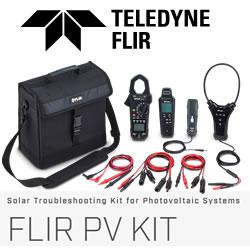Energy Management By Utilities Seen As Early Driver For Home Automation Markets, According to ABI
Managing energy costs will be a driving force for the near term adoption of home automation systems, according to a new report by Allied Business Intelligence (ABI). While automatic meter reading (AMR) technologies are deployed in some markets to reduce costs, the latest advancements of utility monitoring will include real-time pricing and energy management for the residential market.
Managing energy costs will be a driving force for the near term adoption of home automation systems, according to a new report by Allied Business Intelligence (ABI). While automatic meter reading (AMR) technologies are deployed in some markets to reduce costs, the latest advancements of utility monitoring will include real-time pricing and energy management for the residential market.
Control technologies, such as programmable and communicating thermostats, will allow utilities and homeowners to monitor usage patterns and reduce demand during peak periods. ABI estimates that the annual market for heating ventilation and air conditioning (HVAC) control units will grow from $204 million in 2002 to $564 million by 2007, in the U.S. alone.
Worldwide, energy companies are beginning to embrace the benefits of these technologies. Echelon Corporation is currently testing such systems with the Italian energy company ENEL to provide advanced energy management solutions covering 27 million homes by 2004. Smaller pilot programs are underway in the U.S. Puget Sound Energy in Washington State implemented an energy management pilot program for 300,000 homes. The program included time-of-use pricing, charging premiums during peak hours and offering discounts during off peak periods. As customers lowered their energy consumption by 11%, the program resulted in reduced costs, improved customer service and more voluntary energy conservation.
In addition to the energy management control market, the report explores several emerging technologies impacting home automation, including emerging wireless and wireline technologies for a variety of applications. Many manufacturers are focusing on the development of low cost, reliable solutions that have broad appeal.
"A number of companies are pursuing next generation powerline solutions," explains Edward A. Rerisi, Director of Research at ABI. "However, emerging wireless solutions, such as ZigBee, backed by Philips Electronics and Honeywell, and proprietary technologies from companies like Zensys, are worth watching. They provide low cost alternatives to Bluetooth or 802.11 for home control applications."
The report, "Home Automation Systems & Control Networks: Market Segmentation & Drivers, Technology Review and Forecasts," looks at the growing interest in energy management, demographic trends and the technological advances that will impact the future of home automation and drive industry revenues to $3.17 billion by 2007, from $1.34 billion in 2001.
Allied Business Intelligence Inc. is an Oyster Bay, N.Y.-based technology market research firm founded in 1990. ABI publishes research and technology intelligence on the wireless, automotive, electronics, networking and energy industries. Details can be found on the web at alliedworld.com or by calling 516-624-3113.
Featured Product

